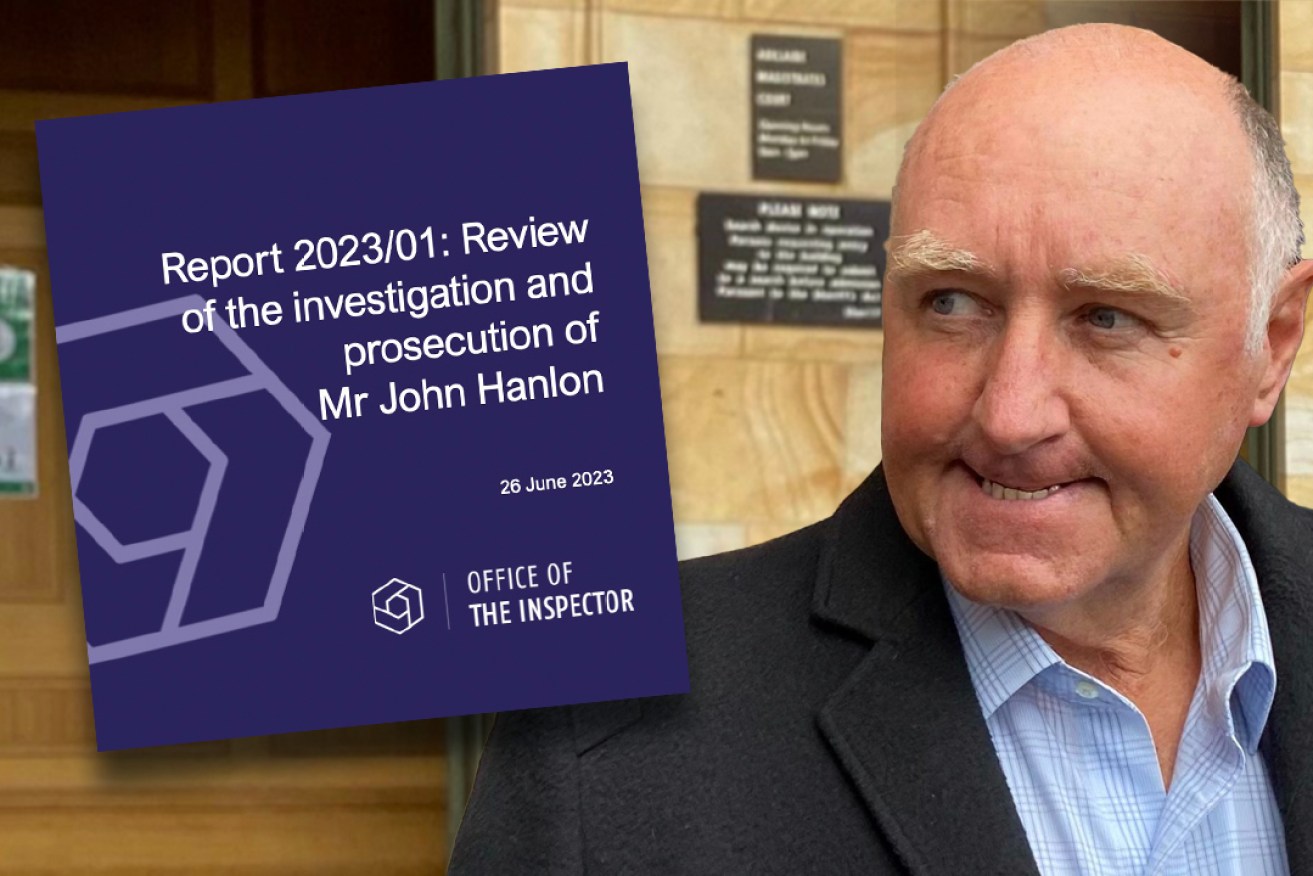ICAC ‘maladministration’ in pursuit of top public servant
A review of the state anti-corruption body’s investigations into a former Renewal SA head who was the subject of two failed prosecutions has found maladministration at “institutional level”, with “substantial mismanagement … resulting in incompetence or negligence”.


Photo: Tom Richardson/InDaily. Image: Tom Aldahn/InDaily
The results of a six-month inquiry into the investigation and prosecution of John Hanlon was undertaken by the Office of the Inspector, Philip Strickland SC, with his 200-page report tabled in state parliament on Tuesday afternoon.
Hanlon was twice prosecuted after ICAC investigation, but walked free both times after the Director of Public Prosecution’s cases collapsed in spectacular fashion.
The former head of Renewal SA, and executive Georgina Vasilevski, took leave from their roles in September 2018 before being charged almost 18 months later with allegedly claiming travel expenses including airfares, accommodation and meals for travel to Melbourne that investigators said was for private purposes.
Hanlon was also investigated over a trip to Germany, with ICAC investigators travelling there as part of their inquiry.
But the case against the pair imploded dramatically in June 2021, with charges dropped after a prosecutor said there was not enough evidence. Hanlon said outside court that he had been under audio and visual surveillance for “weeks” before his office was raided.
However, the Office of the Director of Public Prosecutions continued to pursue Hanlon – but a second case also collapsed in November 2022 after the DPP dropped all charges on the day the trial was set to begin.
The second prosecution failure prompted a please explain from Attorney-General Kyam Maher and a commitment from current Independent Commissioner Against Corruption Ann Vanstone to review the investigations. Vanstone took over as Commissioner from Bruce Lander in July 2020.
The Office of the Inspector, with the power of ICAC oversight and review, was set up after state parliament moved in September 2021 to rein in ICAC’s wide-ranging powers.
On December 1 last year after the second Hanlon case collapsed, Maher announced that NSW barrister Strickland had been appointed Inspector, with his first task being to review the investigation and prosecution of Hanlon, who the State Government has since reimbursed hundreds of thousands of dollars for legal costs.
Strickland said in his report that it was not his role to determine whether or not Hanlon should have been charged by the DPP, examine the DPP’s conduct or decisions regarding its prosecution.
However, Strickland said: “I have found that there was sufficient evidence to justify the investigation by ICAC into Mr Hanlon’s Melbourne and Germany trips. I have also found that the referral of those allegations to the DPP were appropriate and reasonable.”
But his inquiry “revealed a number of failures by ICAC in the conduct of its investigation into Mr Hanlon”.
“These failures were significant and warrant discussion,” Strickland said.
He said in the report that “ultimately, I find no evidence that ICAC engaged in corruption or misconduct in public administration”.
“However, I find evidence of maladministration in public administration in the following aspects of ICAC’s conduct,” he said.
Strickland cited “ICAC’s failure to make proper inquiries, including by obtaining legal advice, about its authority to conduct and the legality of conducting investigations in Germany … ICAC’s conduct in carrying out investigations in Germany without obtaining approval from local authorities” and ICAC’s failure to tell the DPP about such matters.
“I do not find that this conduct was deliberate. Rather, it is evidence of substantial mismanagement in relation to ICAC’s official functions resulting from incompetence or negligence,” he wrote.
Strickland said that evidence of maladministration in public administration by ICAC could not be attributed to Commissioner Vanstone.
“I find that the maladministration in public administration was at an institutional level and cannot be attributed to any one officer,” he said.
“I do not find that the conduct of any ICAC officer warrants referral to SAPOL or another law enforcement agency for further investigation or prosecution. I have also had regard to the measures ICAC has now put in place to prevent such deficiencies from happening in the future. I consider those measures are appropriate and reasonable.”




